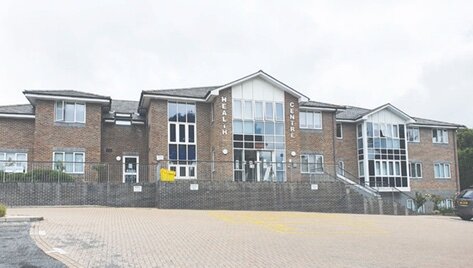By Louise Evatt, Chair of Mid Sussex Health Care Patient Participation Group
The past year plunged our National Health Service into a state of emergency, requiring many sudden changes to the ways patients access health care. It’s been frustrating, worrying and difficult for the community and the practitioners alike. The demands on doctors’ surgeries are higher than they have ever been. The Times reported that in March this year the UK had hit the highest consultations on record, a staggering 28 million. So how has this impacted locally?
The PPG interviewed Dr Miriam Winn, Partner GP at Mid Sussex Health Care, who shared her experiences over the past 19 months. “In early 2020 the practice had to adapt its ways of working. We rapidly needed to move to a total triage model - this was under the direction of NHS England and it was very different to the way we had previously been working. We needed to start screening our patients by finding out what their problem was and how best to manage them whilst keeping patients safe and keeping staff safe.”
Dr Winn recalled the amount of unknowns they had to work with and the speed at which they had to react. She explained how they set up systems to be able to quickly adapt, including the creation of a team to make rapid decisions on a daily basis. “The team met every morning to respond to the information coming through. We also held daily huddles with all staff to explain changes being made and get feedback on how things were going, ensuring staff concerns staff were heard.”
At this time the community was concerned to see the sudden changes, particularly the closure of the Ditchling surgery and the limited access to the Hassocks surgery. Dr Winn explained the rationale for these changes. “We were worried about patients coming into the practice who may be potentially infected and therefore we needed to limit the amount of contact that our staff were having with patients, and we were also rapidly losing staff because they were developing coughs themselves, so needed to isolate, or needed to be at home with family members that were isolating. So we didn’t have enough staff available to open all three sites in a safe way.”
It has been a common misconception that GP practices have been closed throughout the lockdown. “We’ve been here all along,” said Dr Winn, “seeing patients face-to-face in the safest way that’s possible”. She explained how they needed to triage patients to know whether they should be seen in a Covid-secure environment or whether they had potential Covid symptoms and should be seen at the ‘hot hub’. “It was also important to keep our Hurstpierpoint site as a ‘cold site’ so that we could bring in vulnerable patients for blood tests or other appointments and they could be assured that it was as safe as possible. Vulnerable staff could also be assured that they were safe to be at work and worked only at the cold site.”
It’s now been well over a year since the rapid response to Covid began and unfortunately things are still very different to what they once were. We asked Dr Winn how it is now for the practice and its staff. “We’re still doing total triage all day. That will hopefully change soon. At 8.30am it’s all go. Our phone lines open and morning clinics start.” She explains that each GP sees 32 patients either over the phone or at the surgery, during morning and afternoon sessions. In between the two sessions they make home visits, put through patients, send off prescriptions and respond to contact made via E-consult. We all stay on until the job is done, so currently it is an extremely long day for us all.” Dr Winn chatted at length about all the changes, what might remain long into the future and what should eventually come to an end. We discussed reduced contact with the GP, and an increased digital service that the media recently predicted. She remains very positive that MSHC are on the right road ahead. “The rapid pace of change has certainly forced the practice to try new things such as online appointments, but all of us miss that face-to-face interaction with patients. We don’t have any intention to work only remotely, but we will still have online services so that patients have a choice.”
Dr Winn talked about the increased patient choice as a positive to have come out of the changes. She also explained that within the practice, it has also brought teams together to think about how best to manage the problems and to think outside the box, like providing oxygen monitors at home to patients with Covid symptoms. She hopes that patients understand the challenges they have had and welcome any feedback patients may have. The PPG would like to thank Dr Winn for this interview and also thank her and all MSHC colleagues for the efforts they have gone to, to keep our local health care going to support us through the pandemic.

